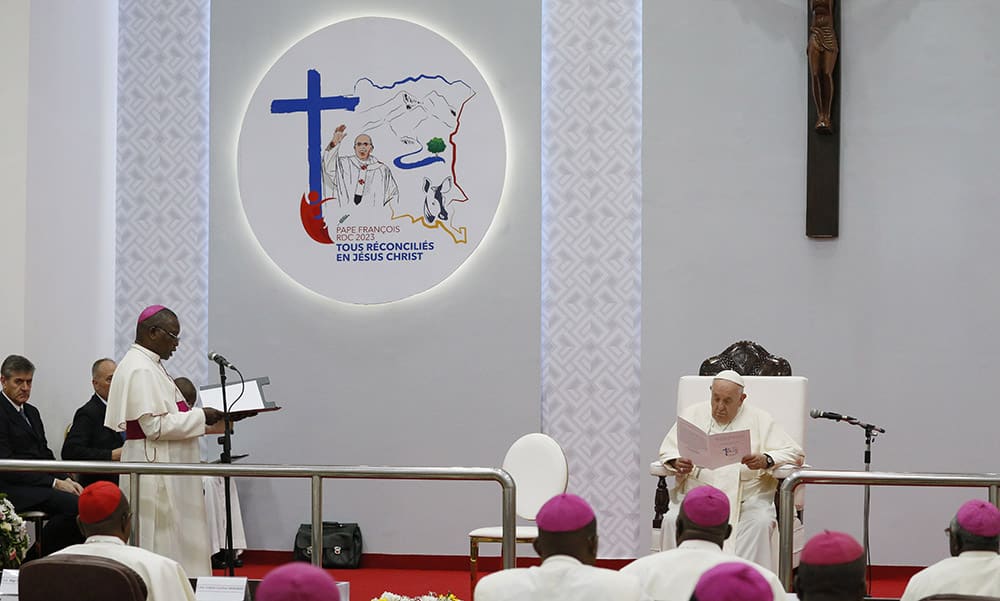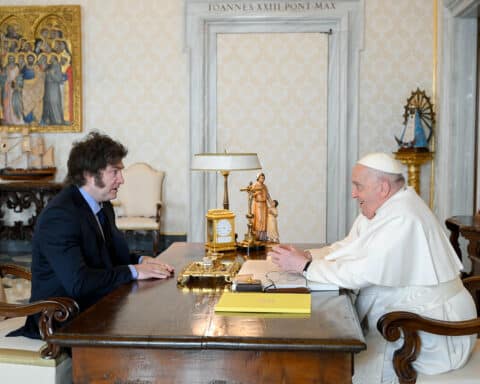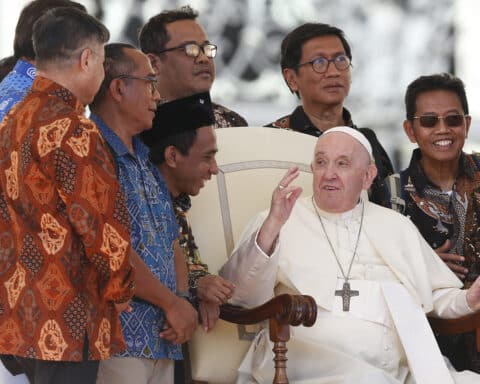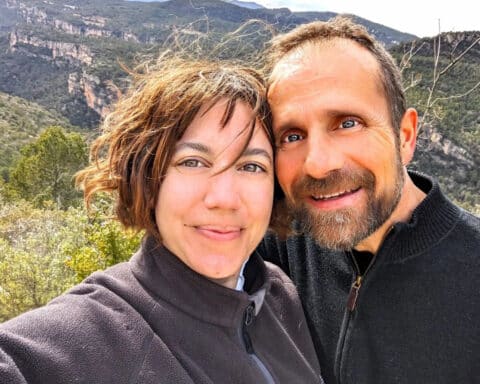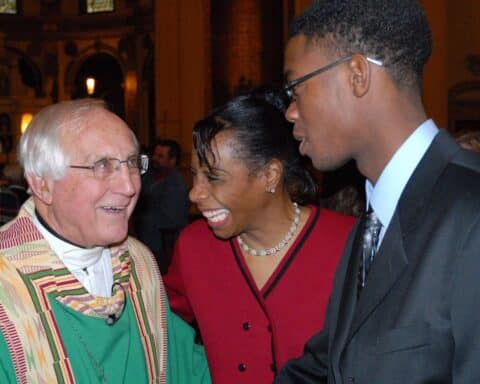KINSHASA, Congo (CNS) — The bishops of Congo must be men of faith and prayer, close to their people and prophetic in their proclamations of hope and denunciations of injustice, Pope Francis told them.
Before leaving Kinshasa Feb. 3 and heading to Juba, South Sudan, the pope met with Congo’s bishops at the headquarters of the episcopal conference. He thanked them for working “twice as hard” preparing for his visit, referring to the fact that they had arranged almost everything for his planned visit in July before it was postponed because the pope was having trouble walking.
Turning to the ministry of bishops, Pope Francis insisted that “proclaiming the Gospel, enlivening pastoral life and exercising leadership cannot become ideas having little to do with the reality of daily life.”
Ministers of the Gospel, he said, “must touch wounds and communicate God’s closeness, so that people can realize their dignity as his beloved children and learn to walk with their heads held high, never lowering them in the face of humiliation and oppression.”
The bishops must make sure the Gospel speaks to a nation enduring violence, civil unrest and poverty, the pope said.
In fact, he said, like the bishops “I see Jesus suffering in the history of this people, crucified and oppressed, devastated by ruthless violence, marred by innocent suffering, forced to live with the tainted waters of corruption and injustice that pollute society, and to suffer poverty in so many of its children.”
The role of the bishops, he said, is to become “channels of consolation and reconciliation for others, to heal the wounds of those who suffer, to ease the pain of those who weep, to lift up the poor and to set individuals free from manifold forms of slavery and oppression.”
The bishops are called to be prophets in the style of Jeremiah, who was told by the Lord, “I have set you this day over nations and over kingdoms, to pluck up and to break down, to destroy and to overthrow, to build and to plant.”
The biblical mandate, he said, means the bishops have an obligation “to pluck up the poisonous plants of hatred and selfishness, anger, resentment and violence; to break down the altars erected to money and corruption; to build a coexistence based on justice, truth and peace; and finally, to plant the seeds of rebirth, so that tomorrow’s Congo will truly be what the Lord dreams of: a blessed and happy land, no longer exploited, oppressed and drenched in blood.”
Pope Francis insisted he was not talking about getting involved in partisan politics.
While Christian prophecy can and does have political and social implications, those areas usually should be left to lay Catholics, he said. Instead, the task of the bishops is “to proclaim the word, awakening consciences, denouncing evil and encouraging those who are broken-hearted and lacking hope.”
As he told priests, religious and catechists the day before, Pope Francis insisted the proclamation of the Gospel requires closeness to the people and personal witness of an upright and holy life.
“The Church’s pastors must first and foremost be credible, particularly in their work of fostering communion, in their moral life and in their administration of goods,” he said.
Pope Francis told the bishops, “May it never be the case that, while others are suffering from hunger, it could be said of you: ‘They didn’t care; some went to their fields, and some about their own business,'” as the Gospel of Matthew says.
“No, please, let us leave business affairs out of the Lord’s vineyard,” the pope told them. “Let us be shepherds and servants of the people, not entrepreneurs!”
Cardinal Fridolin Ambongo Besungu of Kinshasa told reporters that the pope’s visit had focused the world’s attention on Congo and on “what the pope himself called a silent genocide, a genocide no one wants to talk about” where people are slaughtered by militias fighting for or financed by those who want to control the country’s vast mineral wealth.
The pope told neighboring countries and multinational mining companies, “Take your hands off this country,” the cardinal said. “Congo is not Ali Baba’s cave where people come to take out what they want.”
The cardinal also was asked about a chant thousands of young people shouted Feb. 2 during the pope’s meeting with them at Martyrs’ Stadium. Using a nickname of President Felix Tshisekedi, the young people chanted that it is time for him to go. He has been president since 2019 and new elections are expected in December.
“I hope the message was received by the president,” the cardinal said.

